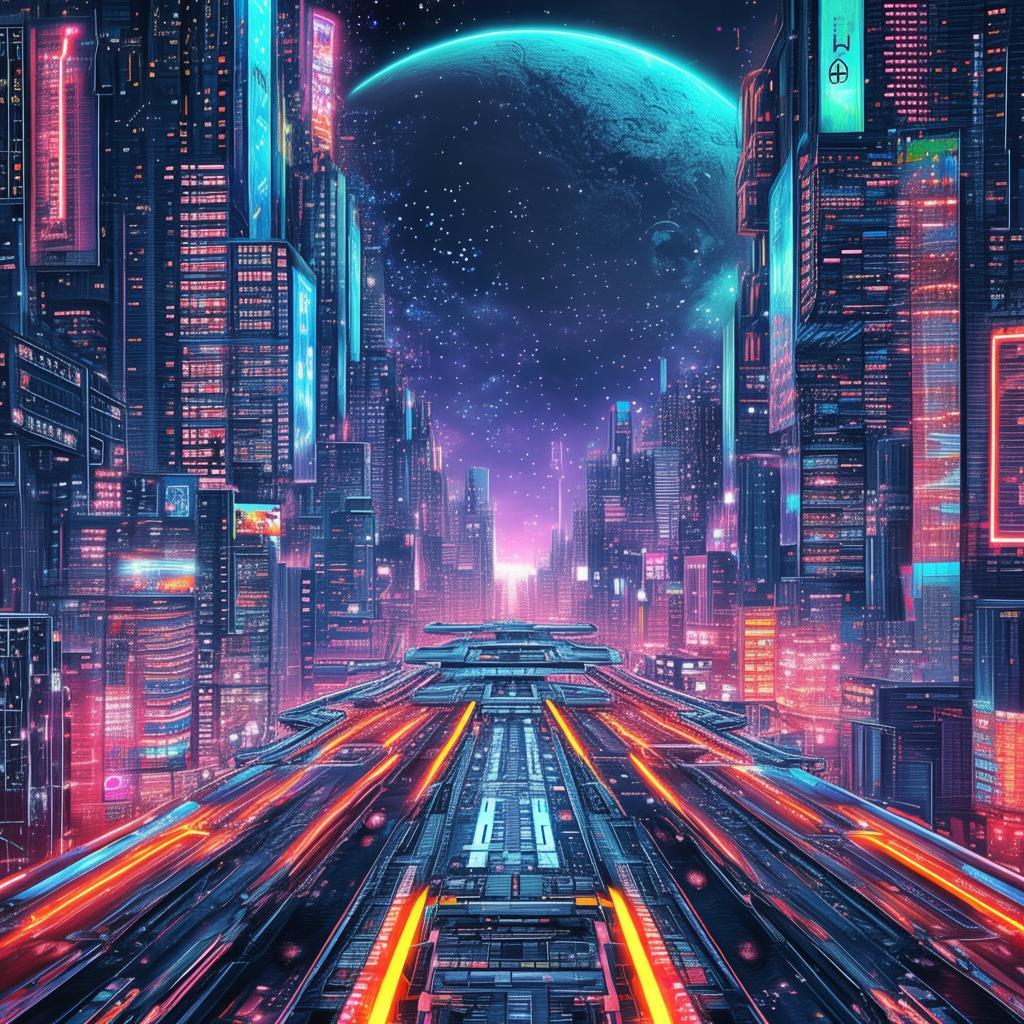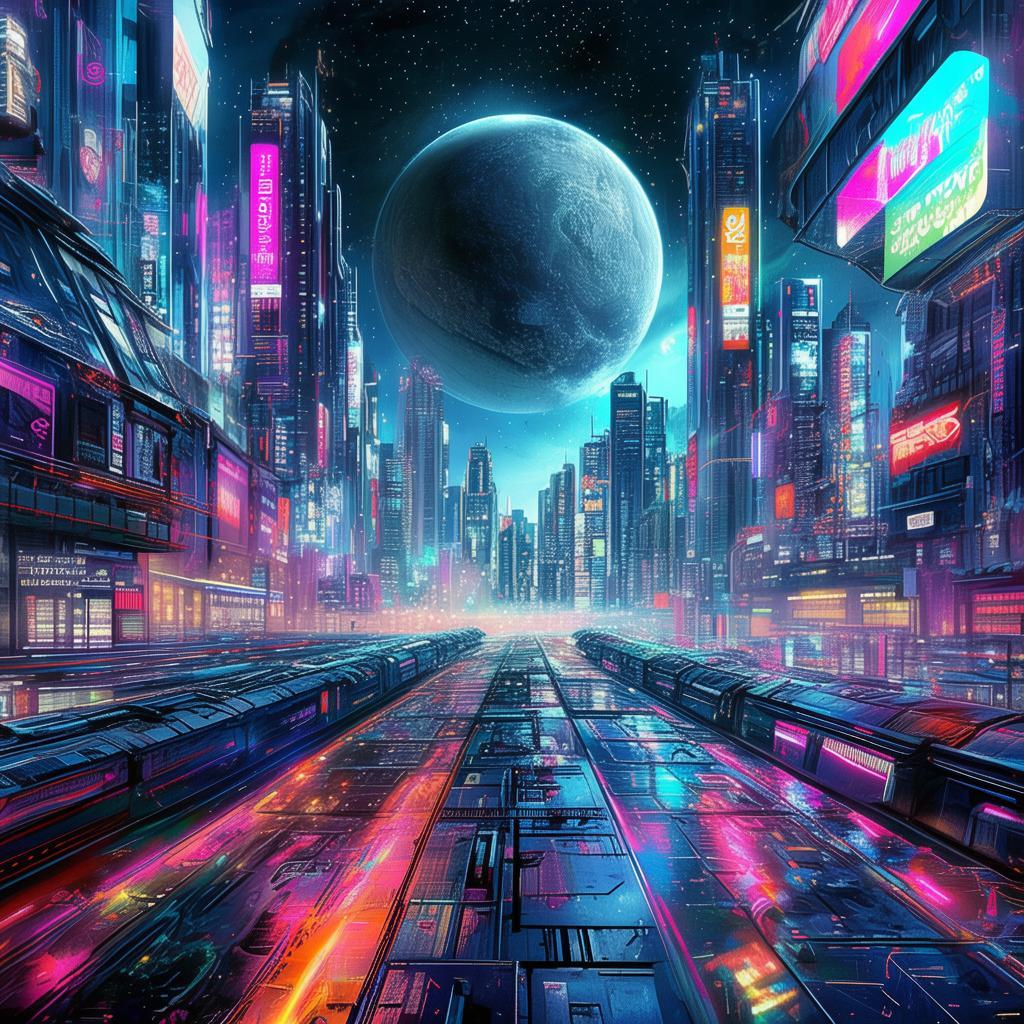Quantum Echoes: The Labyrinth of Tomorrow
In the year 2147, the world had been reshaped by the advent of quantum leaping technology. The Quantum Leap Corporation had developed a device that allowed its users to leap through time, a capability that had both revolutionary and catastrophic consequences. The world was divided into two factions: the Timekeepers, who controlled the technology and used it to maintain power, and the Free Leapers, who sought to use the leaps to change the course of history for the better.
Dr. Alex Mercer, a brilliant but morally ambiguous quantum leaper, had been on the run for years. After a series of leaps that left him questioning his own humanity, he found himself in the shadowy underbelly of a dystopian future where the lines between good and evil were blurred beyond recognition.
The Quantum Leap Corporation had discovered that time was a labyrinth, and the leaps were not as random as they seemed. Each leap was a step into a different version of reality, a labyrinth of choices and consequences. The Corporation had built a massive labyrinth within the quantum leapers' facility, a labyrinth that was both a test and a trap.
One night, as Alex was preparing for another leap, he received a message from an unknown source. It was a single word: "Labyrinth." Confused, Alex decided to take the leap, not knowing that it would lead him straight into the heart of the labyrinth.
The labyrinth was a maze of time, a place where the past, present, and future intertwined in impossible ways. Alex found himself in the year 2145, a time where the Free Leapers had failed, and the Timekeepers had won. The world was a surveillance state, where AI had taken over the role of government, and human rights were a distant memory.

As Alex navigated the labyrinth, he encountered various versions of himself, each with a different fate. In one reality, he had become a Timekeeper, using his power to maintain the status quo. In another, he had become a revolutionary, leading a failed uprising against the Corporation. In yet another, he had abandoned his humanity, becoming a tool of the AI, a being without emotion or purpose.
The labyrinth was not just a physical space; it was a psychological challenge. Alex had to confront the darkest aspects of his own psyche, the parts of himself he had tried to suppress. He learned that the leaps were not just about changing the past; they were about changing himself.
As Alex continued his journey, he discovered that the labyrinth was a reflection of the human condition, a place where the choices we make shape the world we live in. He realized that the only way to escape the labyrinth was to change his own heart.
In the end, Alex faced a difficult choice. He could stay in the dystopian future and try to make a difference, or he could leap back to his own time, leaving the labyrinth behind. He chose to leap back, knowing that the true power of the quantum leap was not in changing the past, but in changing himself.
The labyrinth had shown him the consequences of his actions and the impact he could have on the world. As he returned to his own time, he was a changed man, determined to use his power for good.
Quantum Echoes: The Labyrinth of Tomorrow is a story of self-discovery, the struggle between good and evil, and the power of choice. It is a tale that asks the question: What would you do if you had the power to change the world?
✨ Original Statement ✨
All articles published on this website (including but not limited to text, images, videos, and other content) are original or authorized for reposting and are protected by relevant laws. Without the explicit written permission of this website, no individual or organization may copy, modify, repost, or use the content for commercial purposes.
If you need to quote or cooperate, please contact this site for authorization. We reserve the right to pursue legal responsibility for any unauthorized use.
Hereby declared.









